
Boe District: The Heart of Nauruan Culture and Serenity
Boe District is one of the 14 administrative districts of Nauru. This small but captivating region is located in the southwestern part of the island. Boe may be small in size, but it is rich in cultural heritage and offers a peaceful escape from the hustle and bustle of everyday life. Visitors to Boe will find a warm and welcoming community. The district is known for its serene environment and the traditional Nauruan way of life. Walking through Boe, you can see colorful local homes and meet friendly residents who are happy to share their stories and traditions. A visit to Boe is not complete without experiencing its natural beauty. The district is close to the beautiful Anibare Bay, where you can enjoy crystal-clear waters and pristine beaches. It's the perfect spot for a relaxing day by the sea or a leisurely swim. For those interested in history, Boe also offers a glimpse into Nauru's past with its historical landmarks and structures.
Local tips in Boe District
- Visit during the dry season (May to November) for the best weather.
- Engage with the locals to learn about Nauruan traditions and culture.
- Pack light, breathable clothing as the climate is warm and humid.
- Bring snorkeling gear to explore the underwater life at Anibare Bay.
- Try local Nauruan dishes to get a taste of the island's cuisine.
Boe District: The Heart of Nauruan Culture and Serenity
Boe District is one of the 14 administrative districts of Nauru. This small but captivating region is located in the southwestern part of the island. Boe may be small in size, but it is rich in cultural heritage and offers a peaceful escape from the hustle and bustle of everyday life. Visitors to Boe will find a warm and welcoming community. The district is known for its serene environment and the traditional Nauruan way of life. Walking through Boe, you can see colorful local homes and meet friendly residents who are happy to share their stories and traditions. A visit to Boe is not complete without experiencing its natural beauty. The district is close to the beautiful Anibare Bay, where you can enjoy crystal-clear waters and pristine beaches. It's the perfect spot for a relaxing day by the sea or a leisurely swim. For those interested in history, Boe also offers a glimpse into Nauru's past with its historical landmarks and structures.
When is the best time to go to Boe District?
Iconic landmarks you can’t miss
Nauru International Airport
Discover the unique charm of Nauru International Airport, your entry point to the stunning landscapes and rich culture of Nauru.
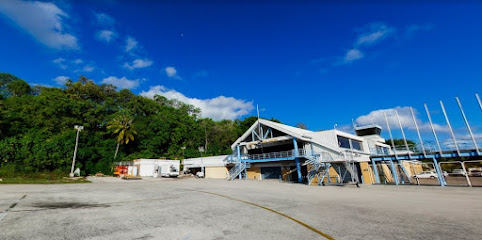
Nauru Australian Immigration Detention Center
Explore the Nauru Australian Immigration Detention Center, a significant site that highlights the complexities of immigration policies and human rights.
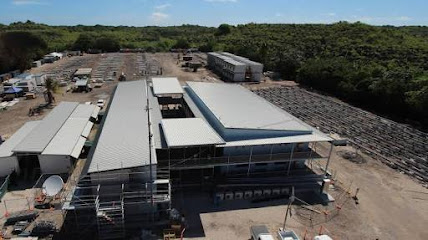
Capelle and Partner
Experience the vibrant shopping culture of Nauru at Capelle and Partner, the top mall in Ronave with diverse shops and delightful dining options.
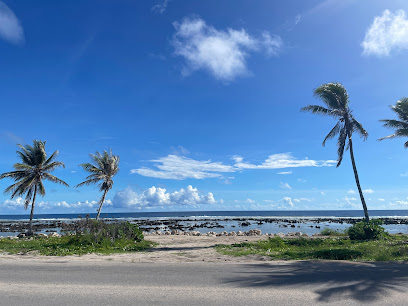
The Bay Restaurant
Discover the culinary delights of Nauru at The Bay Restaurant, where fresh seafood meets breathtaking ocean views in Anibare.
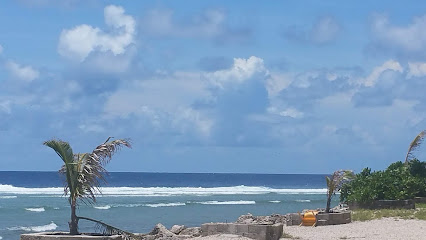
Ewa Lodge
Experience tranquil accommodations at Ewa Lodge in Ronave, Nauru, a perfect retreat for exploring stunning landscapes and rich culture.
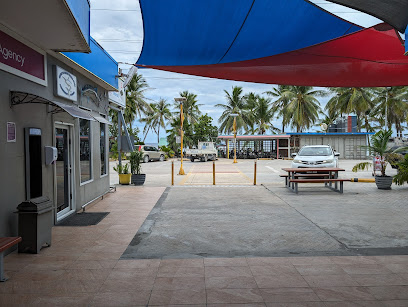
Budapest Hotel
Discover the serene charm of Budapest Hotel in Nauru, where comfort meets the captivating beauty of the Pacific.
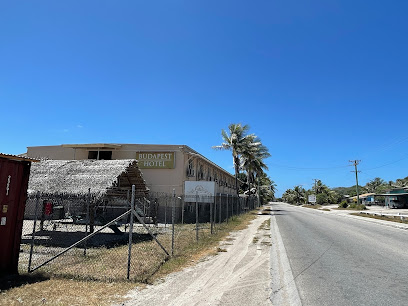
Geography of Nauru
Explore Nauru Island: A Hidden Pacific Gem with Stunning Landscapes and Rich Cultural Heritage.
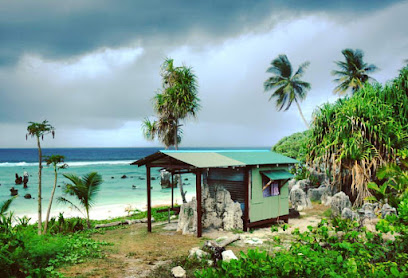
Od-N Aiwo Hotel
Discover the charm of Nauru at Od-N Aiwo Hotel, where comfort meets local hospitality in a unique island setting.

Eigigu Supermarket
Explore local flavors and culture at Eigigu Supermarket in Boe, Nauru - a vibrant grocery store showcasing the essence of Nauruan daily life.
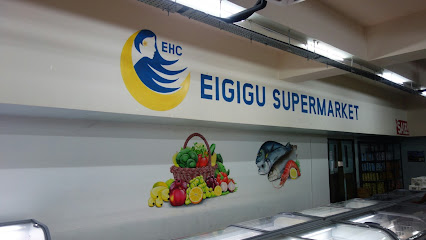
Nauru Ron Hospital
Explore the healthcare landscape of Nauru at Nauru Ron Hospital, a vital facility catering to the medical needs of locals and visitors alike.
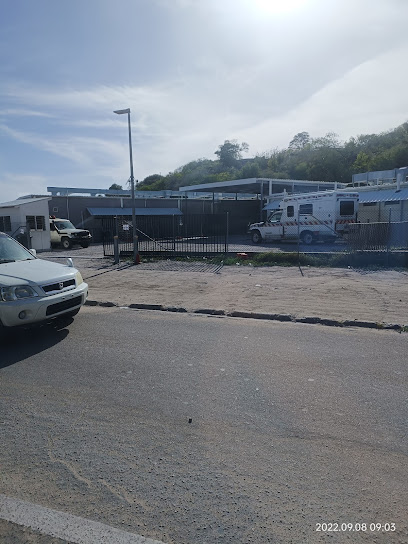
Parliament House
Explore Nauru's Parliament House, a symbol of democracy and culture, nestled in the beautiful landscape of Yaren.
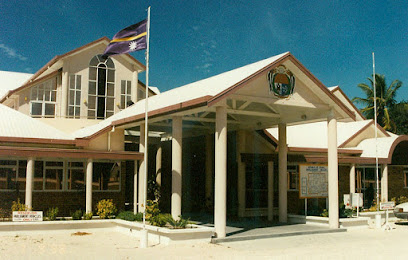
Nauru College
Discover the educational heart of Nauru at Nauru College, where culture and learning intersect in a vibrant island community.
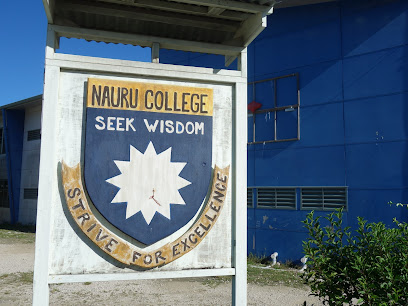
Naoero Museum
Explore the captivating history of Nauru at the Naoero Museum, where rich heritage and unique cultural narratives await every visitor.
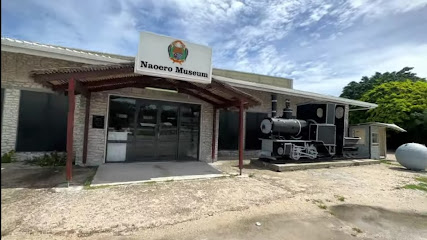
Somewhere Else in Nauru
Experience authentic Nauruan cuisine at Somewhere Else in Nauru, a must-visit restaurant for tourists seeking delicious local flavors in a cozy atmosphere.
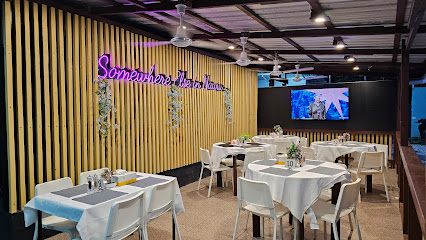
Command Ridge
Discover Command Ridge, the highest point in Nauru, where stunning views meet rich historical significance from World War II.

Essential places to dine
The Bay Restaurant
Experience exquisite dining at The Bay Restaurant in Anibare, Nauru - where local flavors meet breathtaking ocean views.
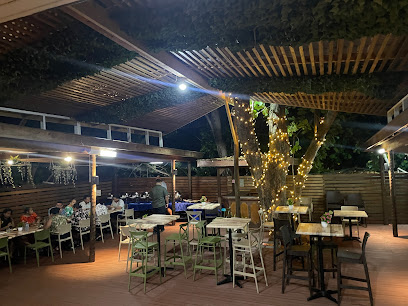
OMG Sushi Restaurant
Experience authentic sushi at OMG Sushi Restaurant in Orro - where freshness meets tradition in every delicious bite.
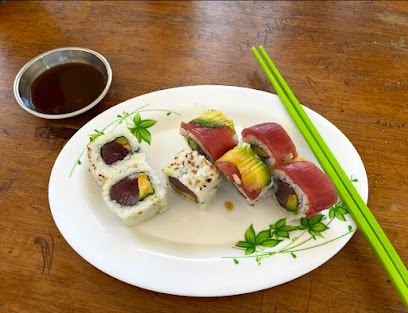
Mr Chippies
Discover delicious seafood and local specialties at Mr Chippies, Anibare's top spot for authentic Nauruan cuisine.
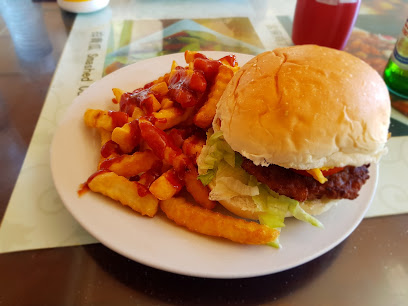
Star Kingdom
Savor authentic Asian flavors at Star Kingdom in Boe – Nauru's culinary treasure offering delightful dishes and warm hospitality.
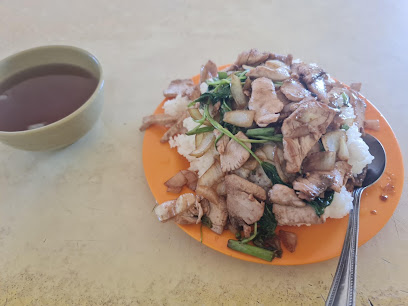
Chinese Restaurant Buada
Discover authentic Chinese cuisine at Chinese Restaurant Buada in Arenibek - where tradition meets flavor.

Anibare Boat Harbour Restaurant
Experience delightful seafood dishes with stunning ocean views at Anibare Boat Harbour Restaurant in Nauru.
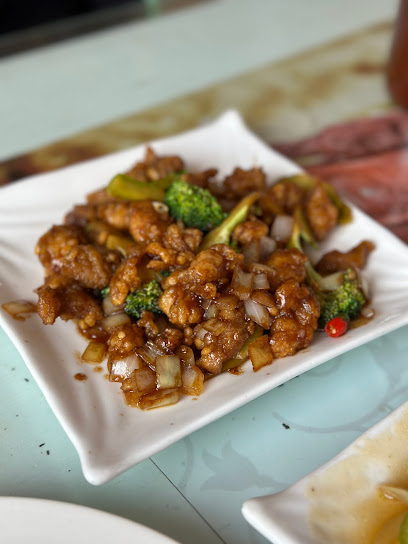
Florrowest Restaurant
Discover the exquisite flavors of Boe at Florrowest Restaurant, where local ingredients meet culinary artistry in a cozy setting.
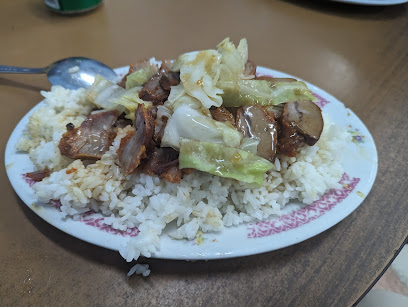
Somewhere Else in Nauru
Discover the authentic flavors of Nauru at Somewhere Else in Arijejen - a culinary haven for travelers seeking delicious local cuisine.
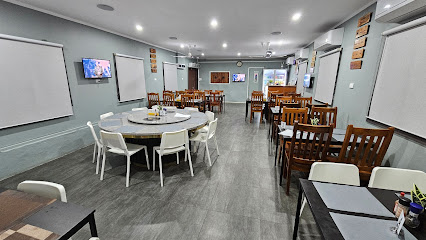
Lucky Tigeress Yum Cha
Discover a culinary treasure at Lucky Tigeress Yum Cha, where every breakfast is a celebration of flavor and tradition.
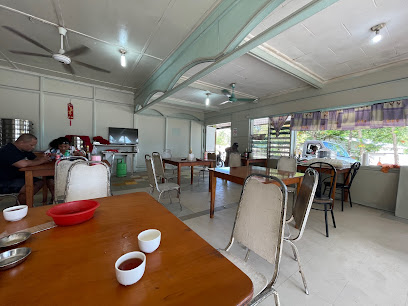
Jullem
Experience authentic Chinese flavors at Jullem in Anibare – where every dish tells a story.
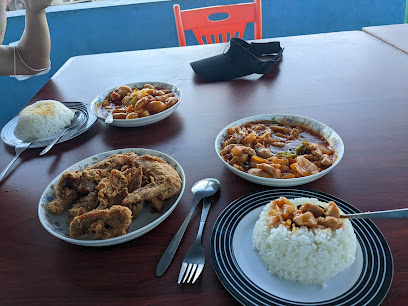
J’ RESTAURANT
Savor the essence of authentic Chinese flavors at J’ RESTAURANT in Arijejen, Nauru - a culinary gem waiting to be explored.
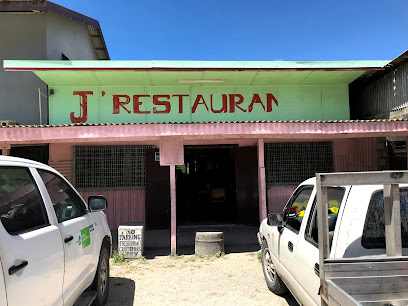
Double J
Experience authentic flavors at Double J in Ibwenape – where every dish tells a story of local culture and culinary excellence.
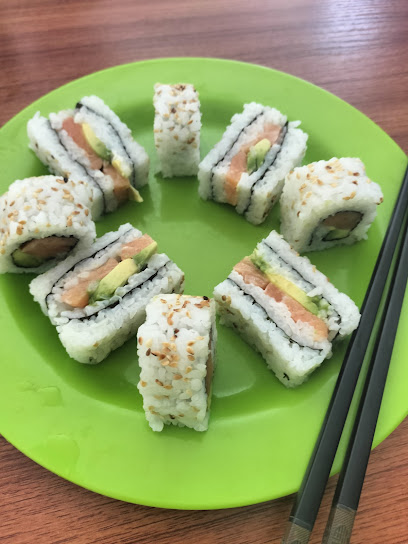
Crystal Kitchen
Discover the warmth of family dining at Crystal Kitchen in Anibare – where every meal is crafted with love and care.
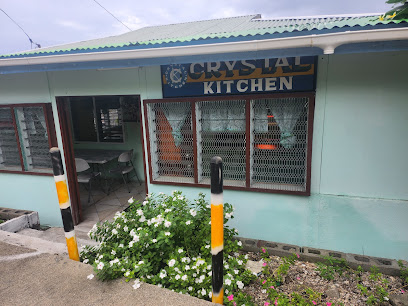
Gabab Restaurant
Savor authentic Chinese flavors at Gabab Restaurant in Boe, where culinary traditions meet warm hospitality.
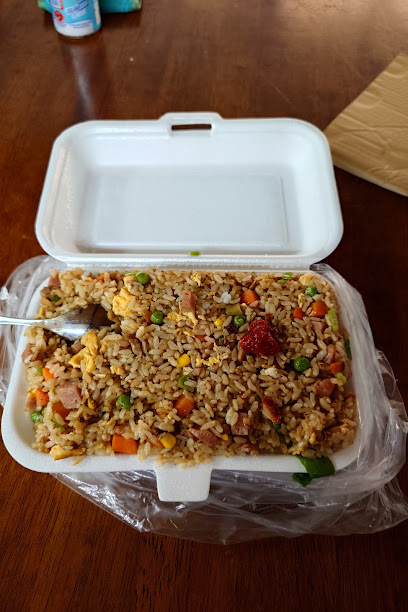
K-Love Restaurant
Discover K-Love Restaurant in Yaren for an authentic taste of Nauru's vibrant culinary scene with fresh local ingredients and a warm atmosphere.
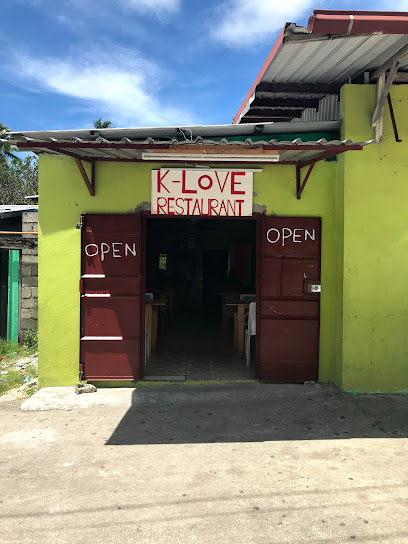
Markets, malls and hidden boutiques
Eigigu Supermarket
Discover the heart of Nauru's culinary culture at Eigigu Supermarket, where local flavors and fresh ingredients await.
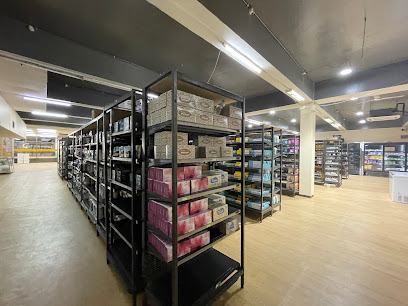
Pacific store
Pacific Store in Nibok: Your ultimate grocery stop for local and international products, open daily from 9 AM to 11 PM.
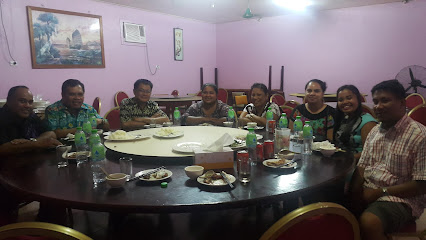
Zombies Store
Explore the charm of Zombies Store in Yaren, Nauru, where unique finds and local essentials come together in a cozy shopping experience.

Vim No.1 Store
Discover local flavors and vibrant island life at Vim No.1 Store in Arijejen, a grocery haven for tourists and locals alike.
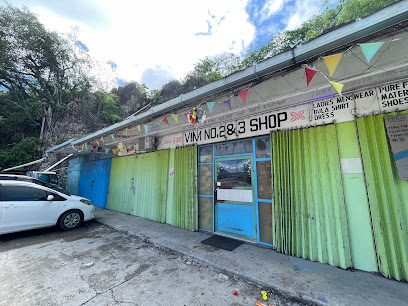
Elizabeth's Garden
Explore unique treasures and local crafts at Elizabeth's Garden, Boe's charming shopping haven for tourists.
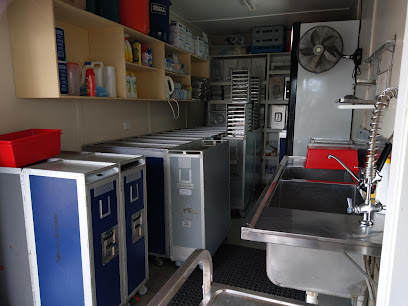
Sunset CornerEnterprise
Explore Sunset Corner in Borderline for local treasures and everyday essentials, a perfect blend of convenience and charm!

Tuka Luka Store
Explore unique fashion pieces at Tuka Luka Store in Yaren, a perfect blend of local culture and style for every traveler.

MyStore
Discover the charm of MyStore in Yaren, your ultimate destination for local goods and unique souvenirs that embody the essence of Nauru.

Aredetõ Store
Discover local flavors and essentials at Aredetõ Store in Arenibek, your convenient stop for all travel needs.

Halo Store
Explore Halo Store in Arenibek for a unique shopping experience filled with local treasures and a warm, inviting atmosphere.
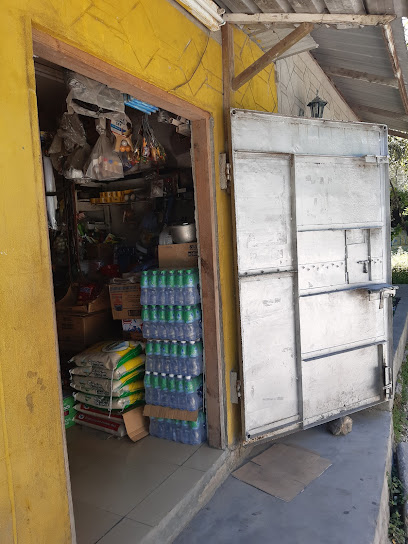
Abwan Warehouse
Explore the charm of Abwan Warehouse in Nibok, Arijejen, where local craftsmanship meets unique home goods for every traveler.

Paradise
Explore Paradise in Boe, where unique clothing meets local craftsmanship, creating an unforgettable shopping experience for every traveler.

Turtle Shop (Food and Drinks)
Experience the essence of Nibok at Turtle Shop, a cozy coffee haven serving delightful brews and local treats.
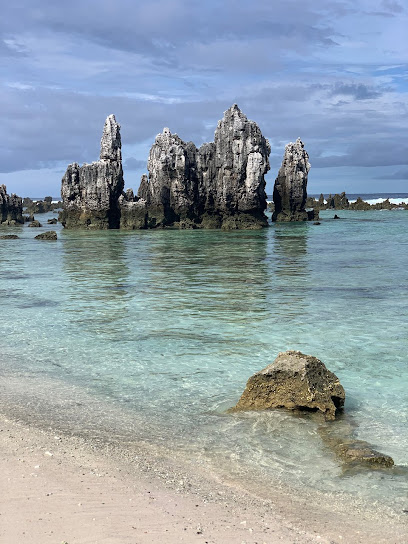
Bi-rite Store
Bi-rite Store in Ibwenape offers a wide range of essentials, snacks, and local treats perfect for travelers seeking convenience.

Naoero Central
Discover Naoero Central in Arijejen – your essential convenience store for snacks, local products, and a taste of everyday life.

Essential bars & hidden hideouts
The Bay Restaurant
Discover the flavors of Anibare at The Bay Restaurant, where fresh ingredients meet stunning ocean views for an unforgettable dining experience.
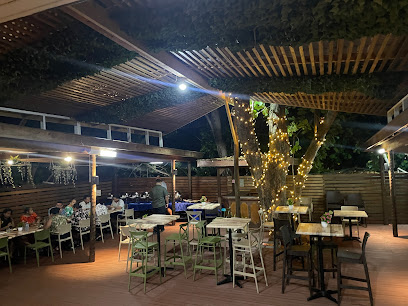
Jules On The Deck
Discover the tropical charm of Jules On The Deck, a vibrant bar in Nibok offering refreshing drinks and stunning views for the ultimate relaxation experience.
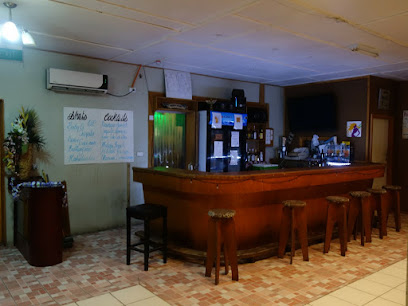
OMG Sushi Restaurant
Experience authentic sushi and Japanese cuisine at OMG Sushi Restaurant, a culinary treasure in Orro that delights every palate.
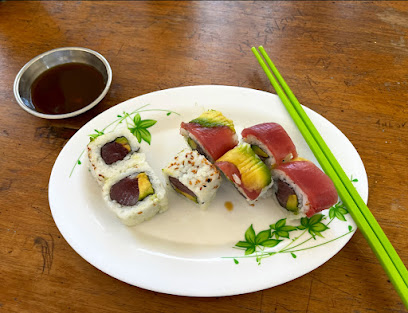
Reef Bar
Experience tropical bliss at Reef Bar, where breathtaking ocean views and refreshing drinks create the perfect getaway in Anibare, Nauru.
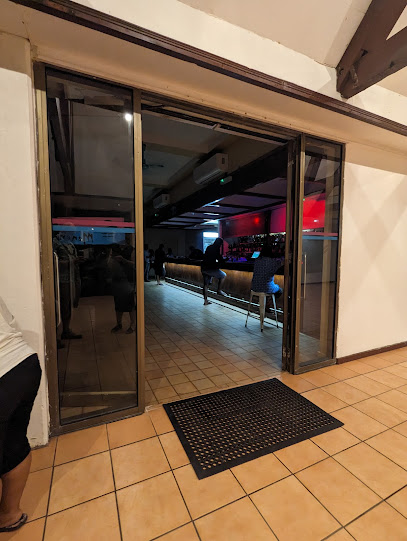
Mr Chippies
Discover the culinary delights of Mr Chippies in Anibare, where local flavors and a friendly atmosphere create an unforgettable dining experience.
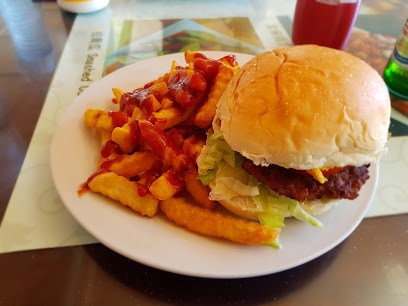
Star Kingdom
Experience the vibrant culinary journey at Star Kingdom, where authentic Asian flavors come to life in Boe's charming dining scene.
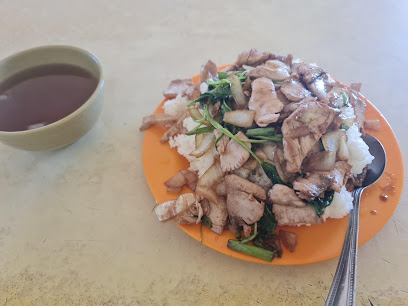
Florrowest Restaurant
Experience the flavors of Boe at Florrowest Restaurant, where local and international dishes come together in a cozy dining atmosphere.
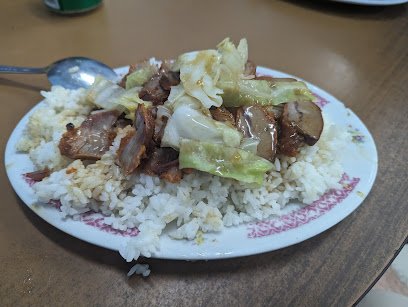
Somewhere Else in Nauru
Experience the authentic flavors of Nauru at Somewhere Else, a charming restaurant in Arijejen showcasing local cuisine.
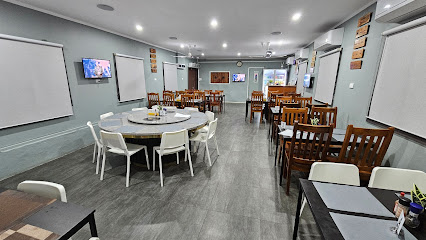
Double J
Discover authentic local flavors at Double J in Ibwenape, where delicious cuisine meets vibrant culture in a welcoming atmosphere.
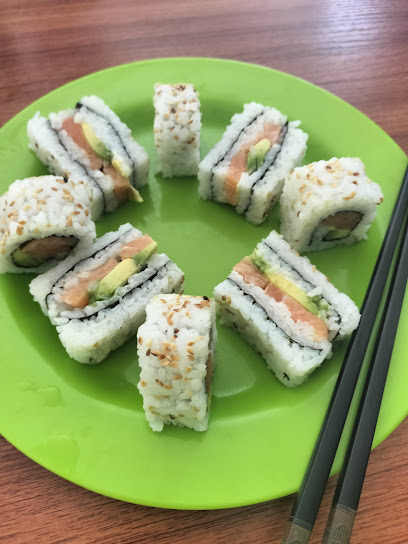
Crystal Kitchen
Experience the vibrant flavors and warm atmosphere of Crystal Kitchen, Anibare's top family-friendly restaurant offering delicious meals for every taste.
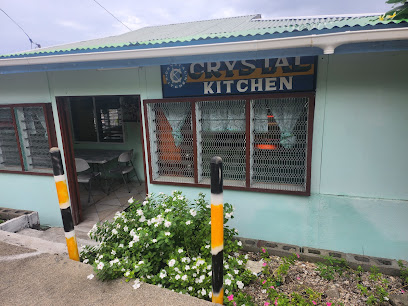
Gabab Restaurant
Experience authentic Chinese cuisine at Gabab Restaurant in Boe, renowned for its generous portions and vibrant flavors.
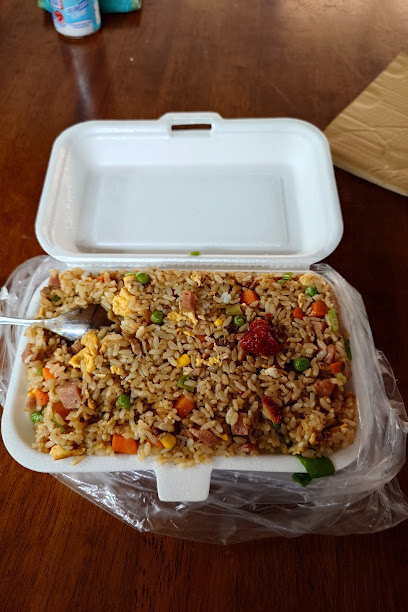
K-Love Restaurant
Discover the flavors of Nauru at K-Love Restaurant, where local and international cuisines blend in a warm and inviting atmosphere.
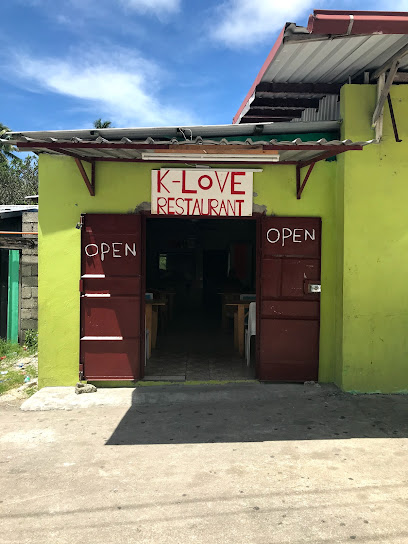
Golden Bridge Restaurant
Discover authentic Chinese cuisine at Golden Bridge Restaurant in Yangor, where traditional flavors meet a warm and inviting atmosphere.
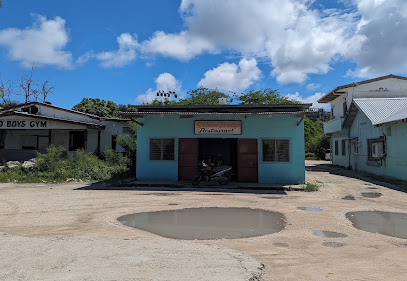
WangJiao Breakfast Restaurant
Experience the best of breakfast at WangJiao Breakfast Restaurant in Boe International Airport, showcasing local flavors and fresh ingredients.
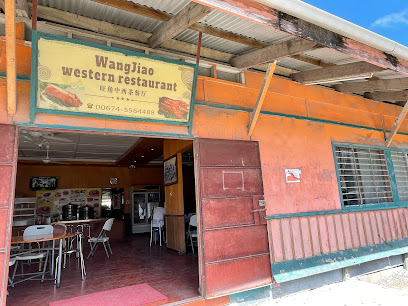
Local Phrases about Boe District
-
- HelloKamraba
[kam-RAH-bah] - GoodbyeIa
[EE-ah] - YesEa
[AY-ah] - NoInea
[in-AY-ah] - Please/You're welcomeKamraba
[kam-RAH-bah] - Thank youKamraba
[kam-RAH-bah] - Excuse me/SorryIa kamraba
[EE-ah kam-RAH-bah] - How are you?Kamraba, iai?
[kam-RAH-bah, EE-eye] - Fine. And you?Ea. Iai?
[AY-ah. EE-eye] - Do you speak English?Iai, e bae Ereniti?
[EE-eye, eh BAH-eh eh-reh-NEE-tee] - I don't understandInea, iai
[in-AY-ah, EE-eye]
- HelloKamraba
-
- I'd like to see the menu, pleaseIai, koe a meniu, kamraba
[EE-eye, koh-eh ah MEH-nee-oo, kam-RAH-bah] - I don't eat meatInea, koe a tenin ka
[in-AY-ah, koh-eh ah TEH-neen kah] - Cheers!Bauroro!
[bow-ROH-roh] - I would like to pay, pleaseIai, koe a tawo, kamraba
[EE-eye, koh-eh ah TAH-woh, kam-RAH-bah]
- I'd like to see the menu, pleaseIai, koe a meniu, kamraba
-
- Help!Tawo!
[TAH-woh] - Go away!Tawo iai!
[TAH-woh EE-eye] - Call the Police!Iai, ko a tawo a Polis!
[EE-eye, koh ah TAH-woh ah POH-lees] - Call a doctor!Iai, ko a tawo a dokita!
[EE-eye, koh ah TAH-woh ah doh-KEE-tah] - I'm lostInea, koe a kara
[in-AY-ah, koh-eh ah KAH-rah] - I'm illInea, koe a nako
[in-AY-ah, koh-eh ah NAH-koh]
- Help!Tawo!
-
- I'd like to buy...Iai, koe a tawo...
[EE-eye, koh-eh ah TAH-woh...] - I'm just lookingIai, inea, koe a tawo
[EE-eye, in-AY-ah, koh-eh ah TAH-woh] - How much is it?Iai, koe a tawo na a bon?
[EE-eye, koh-eh ah TAH-woh nah ah bon?] - That's too expensiveIro a bon ken a ngora
[EE-roh ah bon kehn ah NGOH-rah] - Can you lower the price?Iai, koe a toa na a bon?
[EE-eye, koh-eh ah TOH-ah nah ah bon?]
- I'd like to buy...Iai, koe a tawo...
-
- What time is it?Iai, eia a taim?
[EE-eye, EH-ee-ah ah tah-eem] - It's one o'clockEia e niko
[EH-ee-ah eh NEE-koh] - Half past (10)Tene a kuto (10)
[TEH-neh ah KOO-toh (10)] - MorningMoa
[MOH-ah] - AfternoonIa-moa
[EE-ah-MOH-ah] - EveningMoa-buar
[MOH-ah-BOW-ar] - YesterdayEa-bu
[AY-ah-BOO] - TodayEia
[EH-ee-ah] - TomorrowEa-buar
[AY-ah-BOW-ar] - 1Tein
[TEH-een] - 2Rua
[ROO-ah] - 3Kol
[KOL] - 4Eni
[EH-nee] - 5Rima
[REE-mah] - 6Ono
[OH-noh] - 7Fitu
[FEE-too] - 8Valu
[VAH-loo] - 9Hiwa
[HEE-wah] - 10Sapu
[SAH-poo]
- What time is it?Iai, eia a taim?
-
- Where's a/the...?Iai a...
[EE-eye ah...] - What's the address?Iai a adires?
[EE-eye ah ah-DEE-rehs] - Can you show me (on the map)?Iai, koe a tawo a niko (ne a map)?
[EE-eye, koh-eh ah TAH-woh ah NEE-koh (neh ah map)] - When's the next (bus)?Iai, eia a niko (bas)?
[EE-eye, EH-ee-ah ah NEE-koh (bahs)] - A ticket (to ....)Koe a tikit (ke ....)
[koh-eh ah TEE-keet (keh)]
- Where's a/the...?Iai a...
History of Boe District
-
Boe District, like the rest of Nauru, was originally settled by Micronesian and Polynesian voyagers over 3,000 years ago. These early inhabitants developed a distinct culture and social structure, living off the island’s natural resources, including fish from the surrounding ocean and crops grown in the island’s soil.
-
In the late 19th and early 20th centuries, Nauru, including Boe District, came under the colonial control of Germany, and later Australia, New Zealand, and the United Kingdom. The discovery of phosphate in the early 1900s brought significant changes to the island. Boe District, although not a major mining site, was affected by the island-wide economic shifts and the influx of foreign workers and administrators.
-
During World War II, Nauru was occupied by Japanese forces from 1942 to 1945. Boe District, along with the rest of the island, endured hardships during this period, including bombings by Allied forces and forced labor imposed by the occupying Japanese. The residents of Boe, like many Nauruans, were affected by the scarcity of food and essential supplies.
-
After World War II, Nauru came under the trusteeship of the United Nations, administered by Australia. Boe District saw significant reconstruction efforts during this period. Nauru eventually gained independence in 1968, and Boe District became one of the fourteen administrative districts of the newly formed Republic of Nauru. The district played its part in the national efforts towards rebuilding and establishing self-governance.
-
Today, Boe District is known for its vibrant local culture and community spirit. The district is home to traditional Nauruan practices, including music, dance, and art. Boe also hosts community events and gatherings that celebrate Nauruan heritage. The district's proximity to the capital, Yaren, makes it an accessible location for tourists interested in experiencing the local culture and history.
Boe District Essentials
-
Boe District is located in the southwestern part of Nauru. The primary gateway to Nauru is Nauru International Airport (INU), which is situated in the Yaren District. Flights to Nauru are limited, with Air Nauru (Nauru Airlines) offering direct flights from destinations such as Brisbane, Australia, and other Pacific islands. From the airport, Boe District is a short drive, approximately 10 minutes by taxi or rental car.
-
Nauru is a small island, and most places, including Boe District, are easily accessible. The island has a ring road that circles the entire perimeter, making travel straightforward. Taxis are available and are the most common mode of transportation for tourists. Car rentals are also available at the airport and in the Yaren District. There is no public bus system on the island, so planning for private transport is essential.
-
The official currency of Nauru is the Australian Dollar (AUD). Credit cards are accepted in some hotels and larger establishments, but it's advisable to carry cash, especially when visiting smaller shops and local markets. ATMs are limited on the island, so ensure you have sufficient cash for your stay. It is recommended to exchange currency before arriving or at the airport.
-
Boe District is generally safe for tourists, with low crime rates. However, it is always prudent to take standard precautions. Avoid walking alone at night in poorly lit areas and keep your belongings secure. There are no specific high-crime neighborhoods targeting tourists, but staying vigilant and aware of your surroundings is always advisable.
-
In case of emergency, dial 110 for police assistance and 111 for medical emergencies. Boe District has access to medical services located in the nearby Yaren District, including the Republic of Nauru Hospital. It is advisable to have travel insurance that covers medical emergencies. For minor health issues, there are pharmacies available where you can purchase over-the-counter medications.
-
Fashion: Do dress modestly and comfortably, considering the tropical climate. Avoid overly revealing clothing. Religion: Do respect local customs and traditions. Public gatherings often have cultural significance. Public Transport: Do use taxis or rental cars as there is no public bus system. Don't expect public transportation options. Greetings: Do greet locals with a friendly smile or a handshake. Nauruans are generally welcoming and polite. Eating & Drinking: Do try local dishes and seafood. Don't refuse food if offered, as it is considered impolite.
-
To experience Boe District like a local, visit the local markets where fresh produce and seafood are sold. Engage with the residents, as they are often willing to share stories and cultural insights. Participate in local events or community gatherings if possible. Don't miss visiting the nearby Anibare Bay for a relaxing beach experience and to enjoy the natural beauty of Nauru.
Trending Landmarks in Boe District
Nearby Cities to Boe District
-
Things To Do in Aiwo
-
Things To Do in Buada
-
Things To Do in Yaren
-
Things To Do in Denigomodu
-
Things To Do in Uaboe
-
Things To Do in Anibare
-
Things To Do in Ijuw
-
Things To Do in Anabar
-
Things To Do in Kosrae
-
Things To Do in Mili
-
Things To Do in Majuro
-
Things To Do in Aur
-
Things To Do in Lata
-
Things To Do in Auki
-
Things To Do in Tulagi




